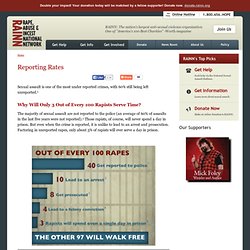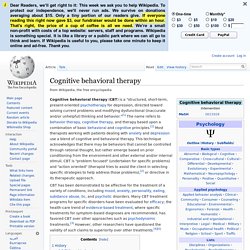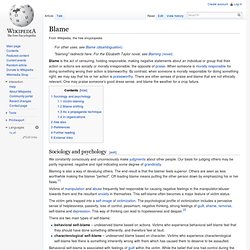

Chad
Stages Of The Loss Process. If you are going through the grieving process, you can expect to go through certain emotional stages.

Typically, grief occurs as a response to the loss of a loved one or to a serious personal injury or illness that you might be going through. It can also manifest itself after a relationship has ended or after a significant life change. Because of individual differences, the stages of grief may not always happen in the exact same way or in the same order.
Knowing the emotional responses that are common, however, can help prepare you to navigate through the process without developing long-term issues. Denial and anger usually occur early on in the grieving process. In the cycle of dealing with grief, bargaining can occur before or after a loss. A psychological side effect of loss is depression. Accepting the loss is the final stage, and it indicates that you have come to the end of the mourning period.
Cool ideas. Google. Kickstarter. Rape, Abuse and Incest National Network. Sexual assault is one of the most under reported crimes, with 60% still being left unreported.1 Why Will Only 3 Out of Every 100 Rapists Serve Time?

The majority of sexual assault are not reported to the police (an average of 60% of assaults in the last five years were not reported).1 Those rapists, of course, will never spend a day in prison. But even when the crime is reported, it is unlike to lead to an arrest and prosecution. Factoring in unreported rapes, only about 3% of rapists will ever serve a day in prison. References. Victim blaming. Victim blaming occurs when the victim of a crime or any wrongful act is held entirely or partially[citation needed] responsible for the harm that befell them.

The study of victimology seeks to mitigate the perception of victims as responsible.[1] There is a greater tendency to blame victims of rape than victims of robbery in cases where victims and perpetrators know one another.[2] Coining of the phrase; Racism[edit] Moynihan had concluded that three centuries of horrible treatment at the hands of whites, and in particular the uniquely cruel structure of American slavery as opposed to its Latin American counterparts, had created a long series of chaotic disruptions within the black family structure which, at the time of the report, manifested itself in high rates of unwed births, absent fathers, and single mother households in black families. Cognitive behavioral therapy.
CBT has been demonstrated to be effective for the treatment of a variety of conditions, including mood, anxiety, personality, eating, substance abuse, tic, and psychotic disorders.

Many CBT treatment programs for specific disorders have been evaluated for efficacy; the health-care trend of evidence-based treatment, where specific treatments for symptom-based diagnoses are recommended, has favored CBT over other approaches such as psychodynamic treatments.[3] However, other researchers have questioned the validity of such claims to superiority over other treatments.[4][5] History[edit] Philosophical roots[edit] Precursors of certain fundamental aspects of CBT have been identified in various ancient philosophical traditions, particularly Stoicism.[6] For example, Aaron T.
Behavior therapy roots[edit] At the same time this of Eysenck's work, B.F. The emphasis on behavioral factors constituted the "first wave" of CBT.[15] Blame. Blame is the act of censuring, holding responsible, making negative statements about an individual or group that their action or actions are socially or morally irresponsible, the opposite of praise.

When someone is morally responsible for doing something wrong their action is blameworthy. By contrast, when someone is morally responsible for doing something right, we may say that his or her action is praiseworthy. There are other senses of praise and blame that are not ethically relevant. One may praise someone's good dress sense, and blame the weather for a crop failure. Sociology and psychology[edit] We constantly consciously and unconsciously make judgments about other people. Blaming is also a way of devaluing others.
Victims of manipulation and abuse frequently feel responsible for causing negative feelings in the manipulator/abuser towards them and the resultant anxiety in themselves. Switchfoot. TED: Ideas worth spreading. Connections Curriculum. Connections Curriculum A 12-Session Psychoeducational Shame-Resilience CurriculumAuthor: Brené Brown, Ph.D., L.M.S.W.Item: 2948Publisher: HazeldenPublished Year: 2009 List Price: $209.00 Each This revised and expanded edition of Connections, now published by Hazelden, draws on empirically based strategies to help your clients recognize shame as a universal experience and embrace authentic living as a foundation for shame resilience. Topics include defining shame practicing empathy exploring triggers and vulnerabilities practicing critical awareness reaching out to others creating, embracing, and inspiring changeConnections engages clients on a cognitive, behavioral, and interpersonal level.
Clients learn via group and personal exercises, handouts, and reading assignments from Brown's best-selling book I Thought It Was Just Me (but it isn't): Telling the Truth About Perfectionism, Inadequacy, and Power. Dr.
Pearltrees tips.